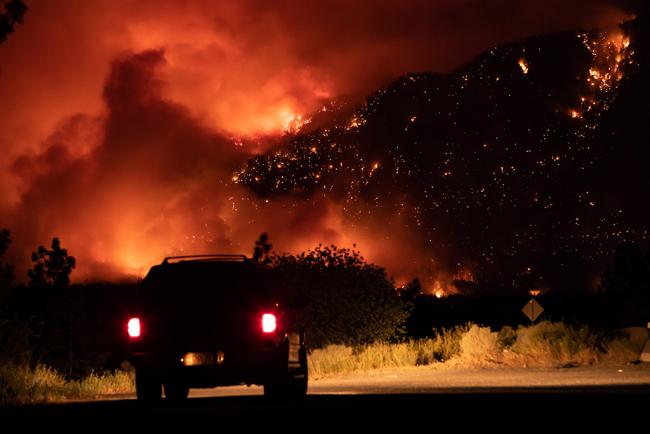Articles Menu

Website editor: Here's a great idea!
Mar. 21, 2023
COP27 ended in November with a historic agreement to establish a “loss and damages” fund to address the impacts of climate change on the most vulnerable nations.
For 30 years, so-called developing countries have asked for a loss and damages fund to help them deal with the unavoidable economic, cultural and human losses attributed to climate change. And for 30 years, so-called developed nations have refused to entertain talks of what some dub “climate reparations.”
This is why the loss and damages fund is seen as one of the few successes to emerge from COP27. With this fund, countries like Pakistan, Kenya and Vanuatu that have suffered climate-induced losses from floods, droughts and rising seawater, will receive financial support. The idea is that countries that have historically contributed the most to climate change will compensate those that have contributed the least.
We can find parallels to the realities of First Nations here in B.C.
Although these First Nations have contributed the least to climate change, they are already suffering the most severe impacts and will likely continue to do so as climate impacts worsen. Two years ago, when a wildfire destroyed 90 per cent of Lytton, the Nlaka’pamux Nation was severely impacted. Last year, when a record-breaking drought struck, thousands of salmon died in Heiltsuk territory, depriving the community of its traditional food and a foundation of its culture.
And there can be no doubt that B.C., as an oil and gas exporting province in one of the countries with the highest per capita and historic emissions in the world, has contributed to climate change.
A loss and damages fund akin to what was negotiated at COP27 could help B.C. fulfil its moral obligation to acknowledge the vast inequities of the climate crisis.
At COP27, the climate minister for Pakistan, a country that has experienced devastating floods, said “This is not about accepting charity… This is a down payment on investment in our futures, and in climate justice.”
If B.C. were to explore a loss and damages fund, it would likewise be more than just compensation — it could support First Nations in their self-determined efforts to rebuild their communities and make them resilient for the future. The rest of Canada would benefit from learning how to adapt to a changing climate.
There is no shortage of ideas from First Nations on how to tackle the effects of climate change.
For example, one of the communities making up the Nlaka’pamux Nation in the Lytton area has developed an adaptation strategy to preserve water resources, deal with forest fires, protect traditional foods and support self-sufficiency.
As Lytton awaits compensation from the federal and provincial governments to rebuild infrastructure after the wildfire, the story does not end here. These kinds of human-induced climate consequences, some of which are irreversible, will continue to happen with increasing frequency and severity.
Can BC afford to set up a loss and damages fund? The answer is a resounding yes. A recent CCPA-BC report found that if the province wants to increase public spending to tackle big challenges, it has the economic capacity to do so.
Alternatively, a loss and damages fund could be financed from a share of B.C.’s carbon tax revenues. The tax is set to reach $170 per tonne by 2030. Allocating some of these revenues to a loss and damage fund would be an opportunity for B.C.’s new Premier David Eby to deliver on his commitment to prioritize climate action.
Thinking about the parallels between global and local climate inequities is an important part of climate justice. But of course, it is up to First Nations to determine their respective and collective priorities.
One thing is clear: as a province, B.C. cannot continue to ignore the fundamental interrelatedness of environmental and racial justice. It cannot successfully confront the climate crisis without addressing social, economic and racial injustices.
UN Secretary-General António Guterres lauded the COP27 commitment. “The fund is an important step towards justice for poor countries that have done little to cause the climate crisis, but are suffering its worst impacts.”
The parallels with the First Nations and the settler colonial state are painfully obvious.
Lisa Akinyi May is Associate Director of the Canadian Centre for Policy Alternatives, BC Office.
[Top photo: A wildfire sweeps down a mountain near Lytton, BC, in 2021. A Nlaka’pamux Nation community in the area has developed an adaptation strategy to deal with climate change; BC needs to support these kinds of initiatives, and establish a climate loss and damages fund. Photo by Darryl Dyck, the Canadian Press.]